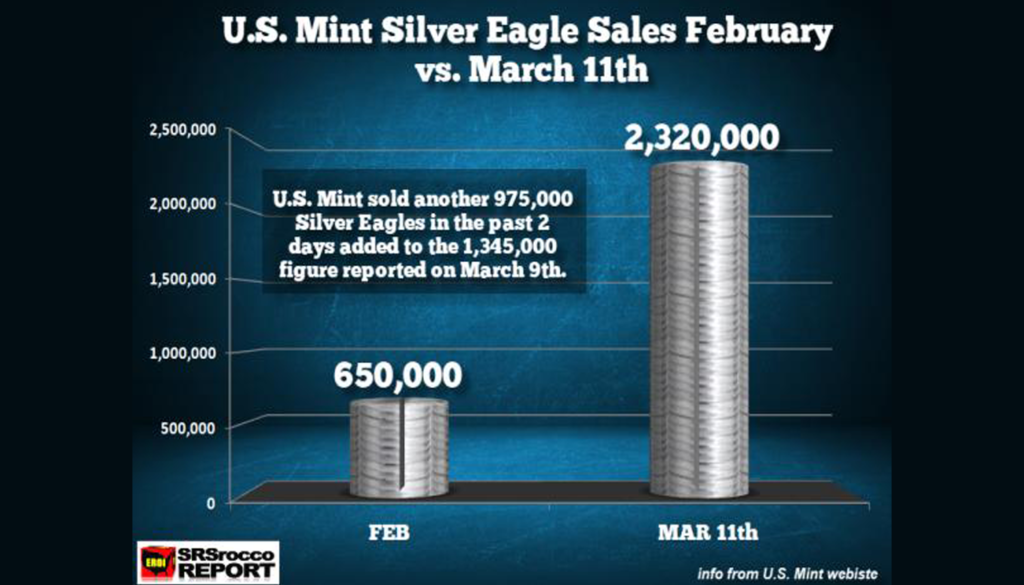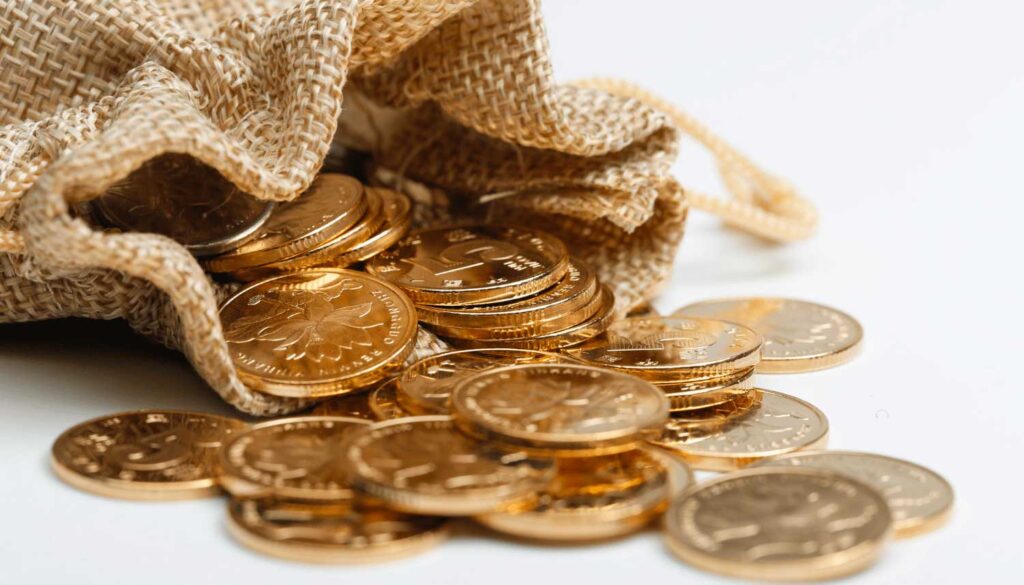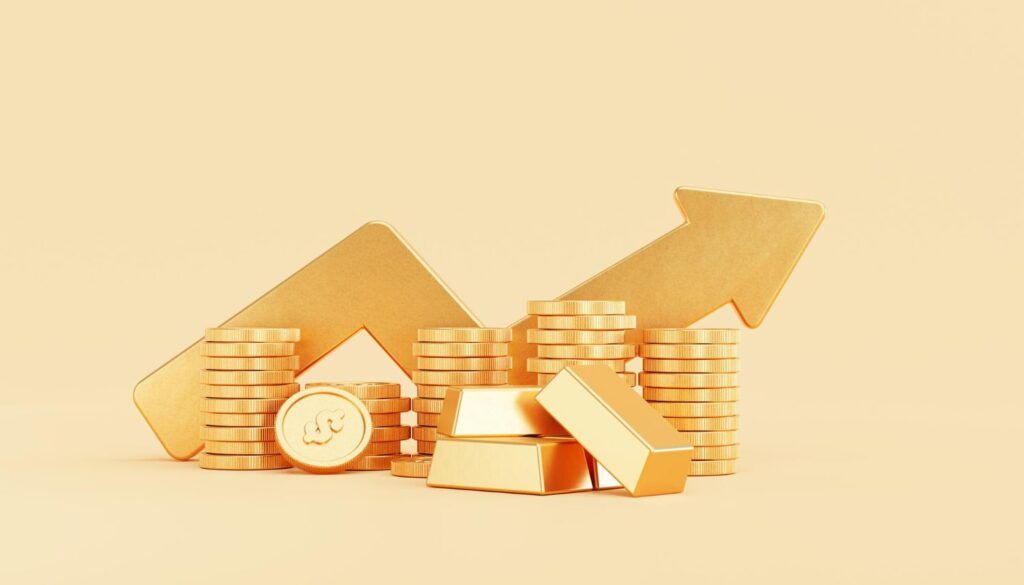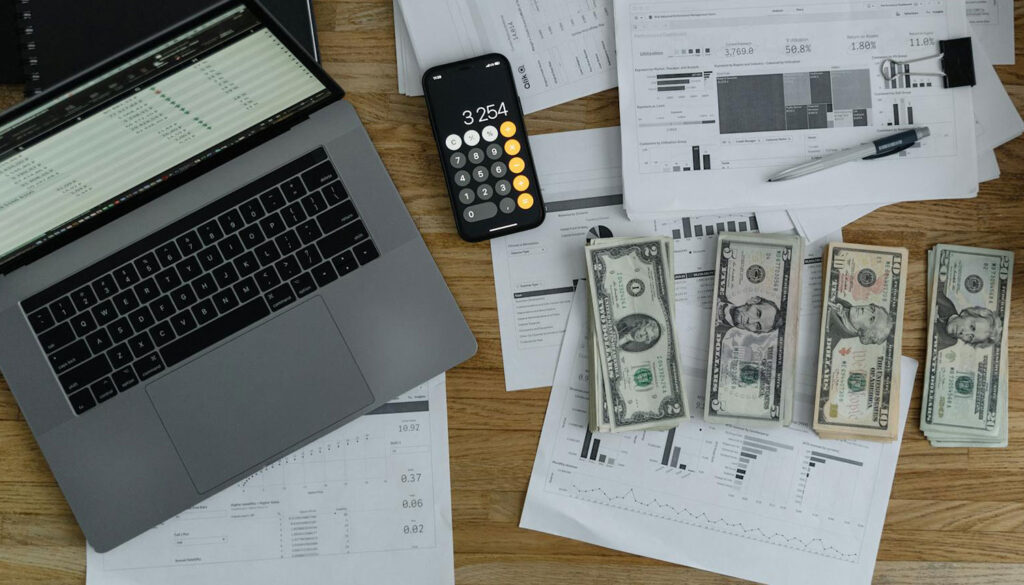Gold is once again above $1,200 and making new highs. And yet, Doug
Casey thinks we’re just getting started, estimating gold could touch
$5,000 before this is all over. A titillating thought, to be sure, but…
how likely is that?
Casey thinks we’re just getting started, estimating gold could touch
$5,000 before this is all over. A titillating thought, to be sure, but…
how likely is that?
Gold’s latest rise stems from mounting fear that the Greek bailout
will be followed by other euro-area countries queued for a me-too
handout. In other words, gold is serving its historical role as a safe
haven, a store of value, and an alternate form of money when
governments recklessly plunge themselves heavily into debt and abuse
their currency.
will be followed by other euro-area countries queued for a me-too
handout. In other words, gold is serving its historical role as a safe
haven, a store of value, and an alternate form of money when
governments recklessly plunge themselves heavily into debt and abuse
their currency.
“But Jeff, $5,000 gold is a long way up,” the skeptics observe. “If you step back and look at the big picture, isn’t the gold price bubbly here?”
One way to test Doug’s thinking is to look at other simmering
trouble spots that would similarly impact gold should they boil over.
So, let us indeed review the big-screen events I believe could send
gold a lot higher. See if you agree.
trouble spots that would similarly impact gold should they boil over.
So, let us indeed review the big-screen events I believe could send
gold a lot higher. See if you agree.
ONE: The PIIGS are not done squealing.
Greece’s Gordian Knot of public debt has not been solved. In fact,
Moody’s is considering downgrading Greece’s debt to junk status,
stating that the announced €750 billion aid package will be “inadequate
to stabilize the problems in both Greece and Portugal.”
Moody’s is considering downgrading Greece’s debt to junk status,
stating that the announced €750 billion aid package will be “inadequate
to stabilize the problems in both Greece and Portugal.”
Ireland appears next likely to be downgraded. Spain and Italy are
not far behind. And little reported is the European Central Bank (ECB)
saying it will purchase billions of troubled assets from Europe’s
largest banks as part of the rescue program. Where have we seen this before? And gee, it’s worked so well; 68 U.S. banks have failed so far in 2010, a full year after the government provided bailout money.
not far behind. And little reported is the European Central Bank (ECB)
saying it will purchase billions of troubled assets from Europe’s
largest banks as part of the rescue program. Where have we seen this before? And gee, it’s worked so well; 68 U.S. banks have failed so far in 2010, a full year after the government provided bailout money.
But it’s the long-term consequences of intended ECB actions that are most worrisome. “The ECB is going to crank up the printing presses,” says Anton Börner, head of Germany’s export federation. “In five to ten years we will have a weak currency, with rising inflation and higher rates of inflation that will act as a break on growth.”
Nouriel Roubini notes that “rising sovereign debt from the U.S. to Japan and Greece will ultimately lead to higher inflation or government defaults. While today markets are being worried about Greece, Greece is just the tip of the iceberg.”
So the obvious question is, what happens to the gold price as debt contagion spreads beyond Greece and the monetary effects of the bailout slam onto the shores of other European countries?
TWO: Knee-jerk confidence in the dollar keeps inflation at bay.
The U.S. debt-to-GDP ratio stands at 90.1%, and the projected 2011 budget deficit is $1.26 trillion or 7.1% of GDP. Total U.S. debt exceeds $55 trillion, over $180,000 per citizen, and the new healthcare legislation is expected to add another$1 trillion burden on the economy. These numbers put America in league with our squealing European friends mentioned above.
Plus, the U.S. monetary base was ballooned and remains over $2 trillion. Are we absolutely sure governments are done printing money?
How will government leaders react if bank failures continue?
How will government leaders react if bank failures continue?
Or commercial real estate crashes? Or state pensions begin to fail?
Or unemployment remains in double digits?
It’s clear the U.S. dollar will suffer inflation due to high and growing debt-servicing costs, government payrolls, and unfunded entitlement promises. The U.S. can either default or inflate, and the former is unthinkable to a career politician. At some point – and we think it is fast approaching – global investors will see that U.S. indebtedness has reached unsustainable levels and exit the dollar, which today means selling bonds. Interest rates will be forced higher, and the U.S. will face its own Greek Moment.
So, what happens to the gold price when the dollar starts falling in earnest?
THREE: The public still doesn’t own much gold.
This may be the biggest one of all. To show just how small the investments in gold is on a worldwide scale, consider these facts:
-
- Jim Rogers reported that at a conference of 300 money managers last month, 76% admitted they still own no gold.
- Fund manager John Paulson is having difficulty raising money for his gold fund.
- Total investment in all forms of gold represents less than 1% of
global financial assets. If investment demand merely doubles to 2% –
something we see as easily attainable – it will have a powerful effect
on the gold price.
That happens to the gold price when the public begins to clamor for it and a true gold rush gets underway?
FOUR: The Unknown Unknowns.
A boxing coach will tell you rule #1 is to not get fixated on the hand that’s punching you – because that’s when the other glove comes flying in and decks you, sending you down for the count.
It’s the unexpected event, the unforeseen catastrophe, the surprise punch that could catch us all off guard and send gold higher. And while we may like the green on our screen from a rising gold price, my fear is that an unexpected economic or monetary ambush could be serious enough that what the gold price is doing is a secondary affair. Prepare for the unknown. And that, perhaps, is gold’s greatest strength – not that it can make you rich, but that it protects you and your family from unpredictable events that would otherwise be catastrophic.
Whether you agree or not that gold will reach $5,000 an ounce, don’t miss the point. Any number of events could send gold higher. And it is during calamitous times of crisis, devaluation, debasement, inflation, and the unknown that gold is needed most. Imagine the Greek worker who has one-third of his assets in gold right now; he may be smiling more than rioting.
I think the rise in price is sending us a message. And this is what I think gold is saying…
I won’t always be this cheap. If you don’t buy me soon, you may regret it. I may get less expensive in the short term, but don’t mistake that to mean I’m losing value or that everything is fine with your paper currencies or your economic future. What you’ve done to your fiat currencies will hurt you. What is coming to the price of things will overwhelm you. What the government has debased will haunt you. I’m here to protect your finances. I may be the only thing that can really do that.
You can be cautious about the price, but don’t be short-sighted about the purpose. Are you sure you own enough of me?
Jeff Clark – Pragmatic Capitalism, May 15, 2010






